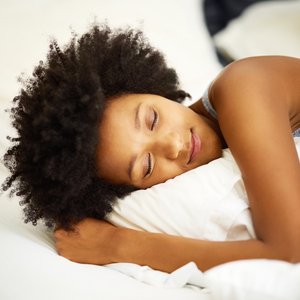
The best news: Sleeping longer may be the key to reaching your health and weight-loss goals.
According to a new study from
researchers at King’s College London, people who snooze for an extra hour or so
could end up consuming fewer sugars and carbohydrates.
With 21 participants involved, the study was admittedly small; it was also a pilot, meaning more studies would be required to support its findings.
Researchers recruited 42 people: half received a sleep consultation intended to up their time in bed by as many as 1.5 hours each night, while the other half proceeded with their bedtime habits as usual.
Each person got an individualised set of instructions – no caffeine before bed; set a pre-sleep routine that promotes relaxation; don’t go to bed too full or too hungry – and a suggested time to hit the hay.
Read more: Will you really get fat if you sleep after eating?
Over the next week, participants wore motion sensors to bed and kept diaries detailing their sleep patterns and daily diets.
The study found that 86% of those in the sleep-consultation group ended up spending more time in bed, and half of them slept longer: between 52 and 90 minutes longer, to be exact.
That extra sleep may have been less restful, which researchers chalk up to it being a new habit. Among the control group, researchers saw no change.
Notably, the long sleepers also reduced their sugar intake – think: the simple sugars found in fruit juice, for example – by 10g, along with their carbohydrate intake.
As principal investigator Wendy Hall, of Kings College’s Department of Nutritional Sciences put it, “a simple change in lifestyle may really help people to consumer healthier diets.”
Read more: 7 easy hacks for your best sleep ever
According to the researchers, more than a third of UK adults don’t get enough sleep. In the United States, that number looks much the same: The Centers for Disease Control and Prevention (CDC) reports that one in three adults is not getting the suggested seven-hour nightly minimum.
Previous research supports the theory that people who sleep for shorter stretches tend to consume more kilojoules than long sleepers, and not getting enough sleep has also been linked to diabetes, high blood pressure and heart disease.
Consider this your perfect excuse to pencil in another hour of shut-eye.
This article was originally published on wwww.womenshealthmag.com
Image credit: iStock




 Publications
Publications
 Partners
Partners










